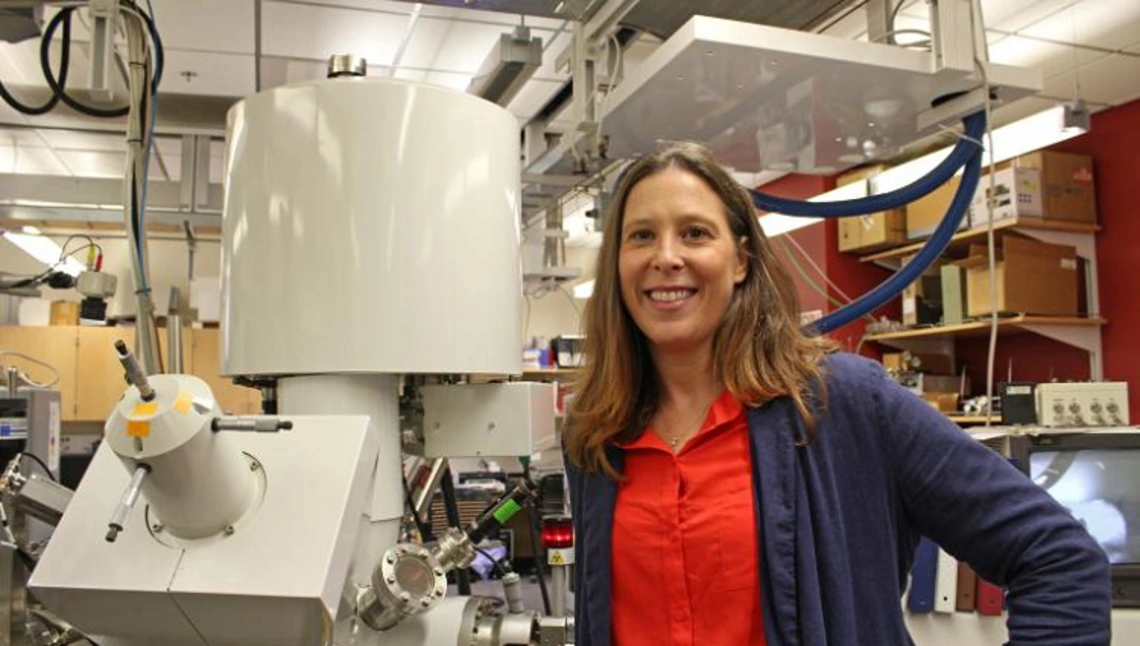Ratcliff Creating Pathways to Student Jobs in National Labs

CHEE associate professor Erin Ratcliff was fascinated by the work she did as a faculty fellow at the Naval Research Lab in 2017 and again, remotely, in 2020. She wanted her engineering students to see the possibilities of similar positions.
"NRL has cutting-edge, amazing equipment and capabilities, and they have a lot of it," said Ratcliff. "They're doing all kinds of highly classified science and technology development – from fundamental concepts to things that almost seem like science fiction."
Ratcliff and a team of engineering researchers have created a unique program at the university that builds a bridge between students and government research jobs.
EMPOWER STEM, funded by $748,000 from the Office of Naval Research, creates connections between Navy scientists and University of Arizona students and faculty. The program gives students opportunities to learn about the engineering behind the latest technologies in the Department of Defense and Department of the Navy. In return, government labs gain access to a well-prepared, diverse pool of potential employees.
"Being an early-career researcher myself, I know how difficult it can be to promote your research," Ratcliff said. "So, just imagine if you're working for the DON (Department of the Navy) on classified projects with so many extra security precautions. How do you recruit people into your lab? And if you are a student, how do you connect with these people?"
The initiative is focused specifically on teaching students about printable electronic devices, such as solar cells, chemical sensors and biosensors, and photodetectors. Printable electronics provide lighter and more affordable alternatives to existing technologies.
"For example, you could imagine a flexible and ultralightweight display or TV that you can roll up and take with you wherever you go," said CHEE assistant professor and co-principal investigator Adam Printz. "With EMPOWER STEM, we are going to introduce a new generation of scientists and engineers to these technologies, giving them a solid framework in both the fundamental science and applied experience so that they can be the innovators in the very near future."
